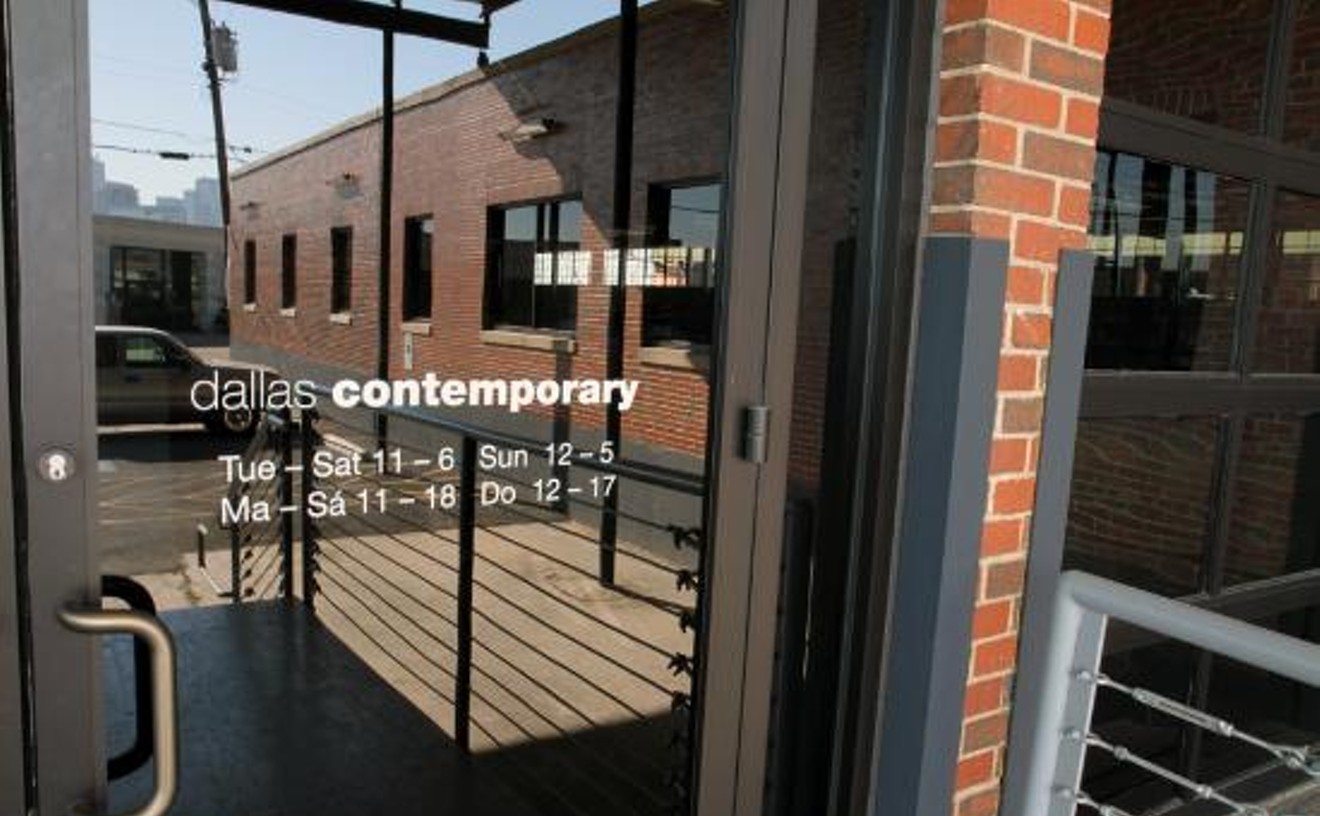Best Art Festival
Deep Ellum Community Arts Fair

- Elm St., Dallas, 75226 Map

That’s why we often rely on influencers, readers and our cast of contributors to help us keep tabs on our town. For the past several Best of Dallas issues, one of the people we’ve relied on the most to help keep things lively and lovely to look at is creative director and photographer Kathy Tran (@kathytranx).
What does that job entail? It’s pretty simple, really … for us, anyway. Every year, the Observer staff picks a theme for our Best of Dallas issue and passes it on to our art director Sarah Schumacher and, for the past several years, to Tran and her team (@kathytran.creatives). Make us look good, we tell them. Somehow, they do.
In 2021, the theme was “Roaring ’20s,” and it was Tran and company who arranged the costumes, models and locations to create a speakeasy vibe. In 2022 it was “Space Cowboy” (we never said the themes were all good), and the team found the creative juice to create a sci-fi/Western vibe. In 2019, for “Party With Pegasus,” her partner/writer Daniel Rockey donned a full-body red Pegasus costume and posed for photos in August heat. (We’re really glad we didn’t kill you with that one, Daniel.)
Tran began shooting food photos for the Observer and other publications about 10 years ago, and her work has captured the eye of other outlets and businesses in need of good, creative content. Food photography is still her “bread and butter,” she says, no pun intended, but her businesses has blossomed far beyond that. Operating under the rubric Kathy Tran Creatives (kathytran.com), she has expanded her brand and now employs a half-dozen staff members. In recent months, she and Rockey purchased a combination home and studio space in Kessler Park (@kesslerstudioco). Some of their work includes creating content for influencers, though soon she might be her own biggest client on that score. She is expanding her personal brand with an eye to becoming an influencer focusing on her lifestyle and all that entails: home decor, entrepreneurship, wellness and food . Keep an eye out for her coming YouTube channel.
“I’m like a hybrid,” Tran says. “I’m still a photographer, but I want to build my brand.” She’s happy with her success in Dallas, but has plans to expand her reach into the wider world.
Still, photography and photojournalism are her passion, she says, and she conducts three to five shoots a day. And Best of Dallas will always hold a special place in her heart she says, words we have written down in our notes and plan to have notarized in hopes that makes them a binding contract.
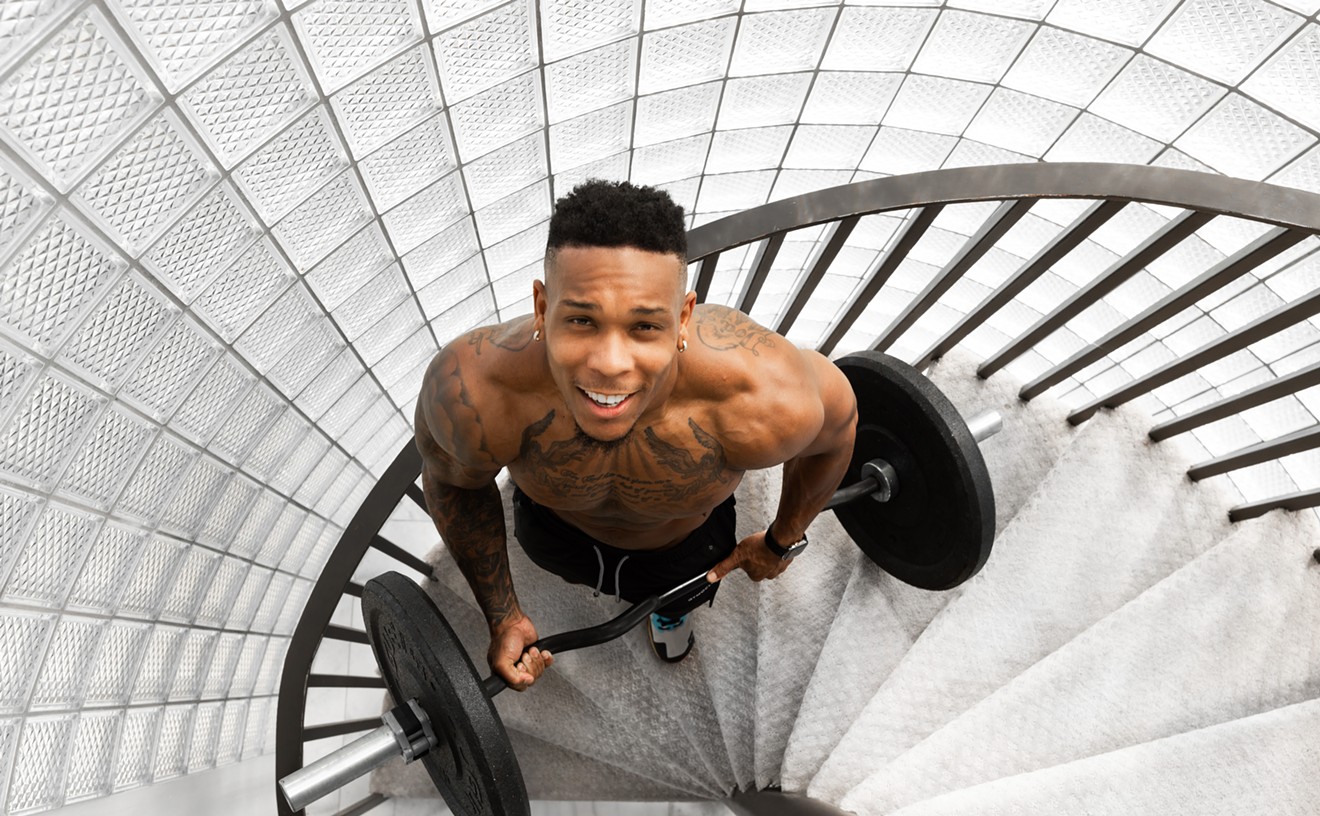
The producer of a popular YouTube fitness channel (youtube.com/@BullyJuice) that he creates with his family at their home in Dallas, Williams has amassed around 5 million followers on YouTube, along with millions more on Instagram, TikTok, Meta and his own blog. His message is ever-positive: You can get fit. You don’t need a gym membership or fancy equipment — just a little bit of time, a yoga mat and some commitment.
The yoga mat is optional. The commitment isn’t, but he’ll be there to help, feeling the burn with you, minute by minute.
The Florida native’s journey to influencer stardom began when he served in the U.S. Air Force in 2015. The former collegiate sprinter was already fit, so he naturally fell into the role of physical training leader.
“I had to come up with my own workouts to either get people in shape that failed their PT test or to just keep people in shape,” Williams says.
A fan of American bull terriers, he had dabbled in posting content online featuring his dog Blaze, and when he released some of his workout regimens online, the response was positive. His wife, Brittany, who has her own lifestyle-focused influencer brand LavishlyBritt (youtube.com/@LavishlyBritt), told him he was an inspiring teacher and should develop his fitness content. He did, and then came COVID, bad for health generally, but rocket fuel to a social media influencer focused on stay-at-home fitness.
“Naturally, when the pandemic happened, everybody started working out at home,” Williams says. “… I actually had teachers that would email me, and they were giving students my workouts to keep them active while they were at home.”
A large part of Williams’ appeal is his focus on family, faith and positivity. His brother Jordan shoots the videos, and he includes Brittany and their two children — a third is on the way soon — in many of them. (Sadly, Blaze, died of cancer this year.)
They’re all part of a growing business that today includes an athleisure wear brand, Gymoclock (gymoclockfitness.com).
Beyond the appeal of Williams’ personality and his family, B
Clearing the Smoke
Daryoush Austin Zamhariri and the Texas Cannabis Collective Aim To Educate.
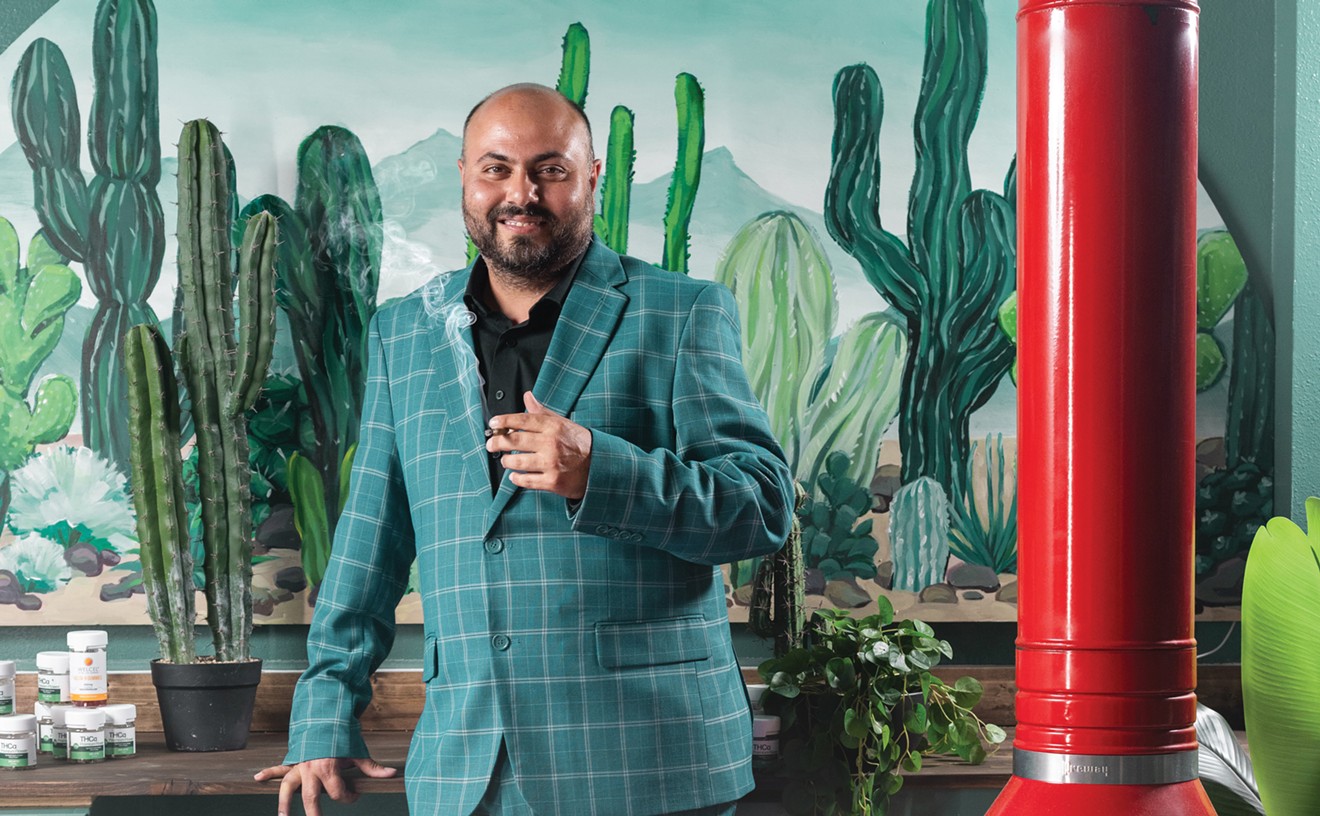
Most recently in Garland and Little Elm, small entrepreneurs who thought they were operating legal CBD and cannabis businesses under the state’s hemp laws have found their goods seized, their businesses shuttered and themselves threatened with prison time by law enforcement agencies following a different playbook.
Daryoush Austin Zamhariri, founder of the Texas Cannabis Collective, wants to change that. The first step is to educate.
“What used to be considered marijuana is not necessarily marijuana now,” Zamhariri says. “… The narrative is changing, and it’s changing radically, and it’s changing faster than most people like to admit, and people are having a hard time understanding.”
In 2015, he visited Colorado, where he was impressed by that state’s legal recreational marijuana program. He returned to Texas in 2016 and founded the Texas Cannabis Collective. The original goals were to increase understanding of cannabis’ potential health benefits, bring clarity to the law and advocate for full legalization.
“I fell in love with the scene in Colorado and thought, ‘How hard can it be to legalize in Texas?’” Zamhariri says.
Very damn hard, it turns out, in a state that doesn’t allow for voter initiatives to change state law and with a hardline conservative Senate. While the collective’s website, txcannaco.com, remains a go-to site for news about cannabis in Texas, its activism have grown substantially. “In 2022 we really dove in headfirst,” Zamhariri says. “We joined forces with several local organizations that were trying to decriminalize at a local level.”
Volunteers collected petition signatures to support successful city-level initiatives to decriminalize marijuana in Denton, San Marcos and Killeen and today are providing support to similar efforts in College Station and Lubbock.
While Texas’ 2019 hemp law legalized CBD products and the growing of hemp — cannabis that contains no more than 0.3% percent delta 9 THC — legislators provided little or no funding to support and educate law enforcement about the new laws, leaving dispensary operators to the mercy and understanding of local police.
“There’s no education behind what hemp is, what marijuana is, from the state level,” he says. “It’s really incumbent on each county. … I’m getting concerned to the point that the state doesn’t know what state law is.”
Texas Cannabis Collective wants to use its influence to change that, town by town, county by county and, if necessary, lawmaker by lawmaker. The effort seems to be paying off, with a solid majority of Texans supporting liberalized cannabis laws. Education is winning, Zamhariri says. “It’s a wall that’s slowly crumbling down.”
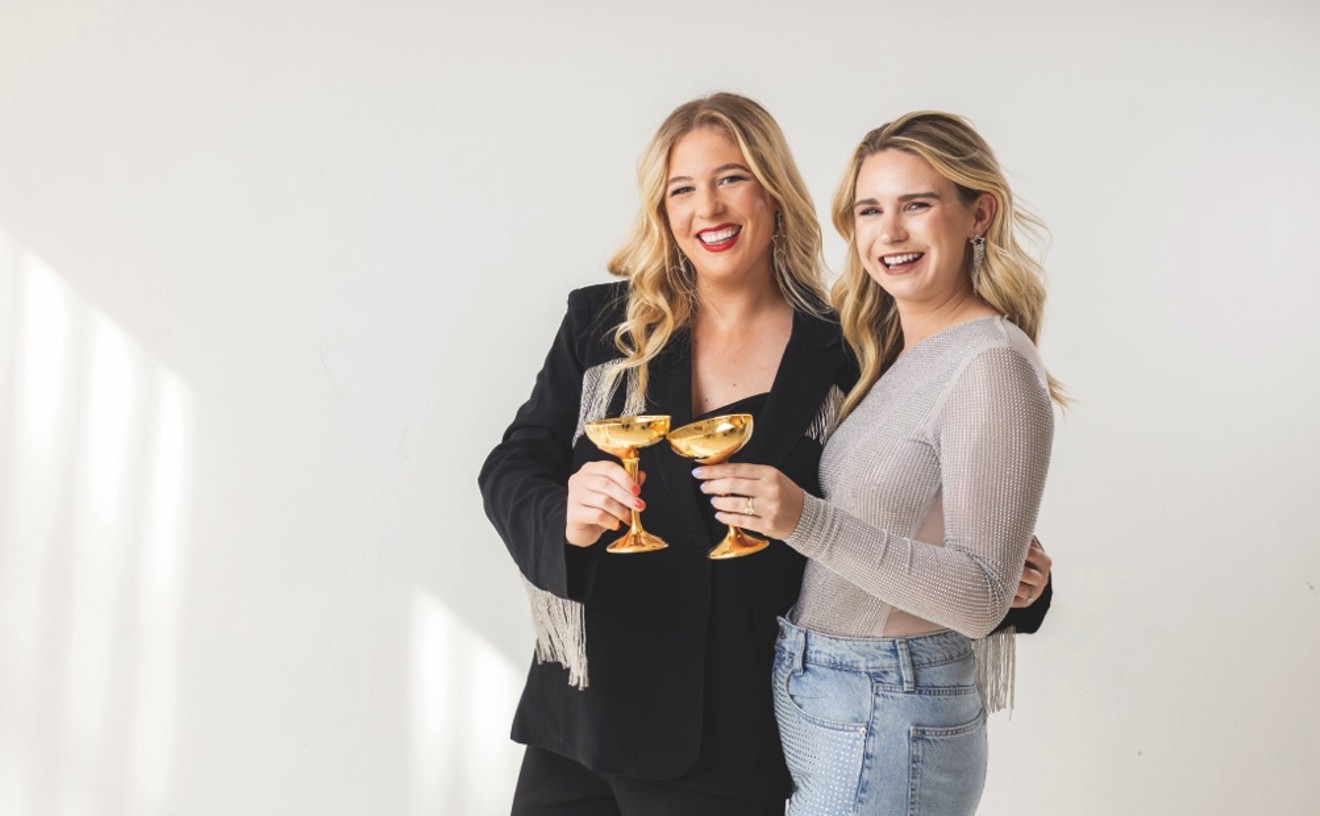
It’s a safe bet that question is asked every day around Dallas. According to the U.S. Census Bureau, North Texas was home to three of the 10 fastest-growing counties in the nation between 2020 and ’22, — Kaufman, Rockwall and Parker — and Collin and Denton county were among those with the largest net population gains.
Relocating to another metro area is daunting, but luckily immigrants to Dallas have a resource designed to make them feel right at home: Dallasites101, created by Kara Cecala and Lily Kramlich-Taylor. They’re Dallas immigrants, naturally: Cecala is from Connecticut and Kramlich-Taylor from California. They met through mutual acquaintances after moving to Dallas for work in 2014 and bonded over a shared love for their new home.
“We kept meeting a lot of other transplants who didn’t love living in Dallas,” Kramlich-Taylor says. “They would talk to us about how they would go to work and go home and didn’t know how to meet people. They didn’t enjoy the city, and it made us really sad to hear because we were having so much fun.”
The pair started an Instagram page to share their experiences with other newcomers.
Dallasites101 — the name is a riff on introductory college courses — was created in 2015. The original goal was to serve a niche market of newcomers. After the two got their first offer of money from a local restaurant to place a post on their Instagram site, the model shifted as more offers came in.
Today, calling them influencers is a stretch. Cecala and Lily Kramlich-Taylor’s creation has become a small, booming media and marketing business located in a converted house in the State-Thomas District. They employ more than two dozen people and have expanded into newsletters, event planning, advertising and media management.
Planners naturally look to the future, and the pair already have their eyes on further expansion. They’ve created Austinites101 on Instagram, and they founded 101Media as an umbrella group for their efforts, which include managing social media for businesses and possible expansion into other cities. Cecala says they’re moving carefully on entering other markets, since key to their success here is the fact that they are here, talking knowledgeably about the city they grew to love.
In the meantime, their Dallasites101.com website continues to expand and has become a go-to resource loaded with event news, lists of popular venues and businesses, and news on the latest trends.
“We truly just wanted to encourage people to get out and about in Dallas and have a great day here and not second-guess living here,” Cecala says. “We really felt like we wanted to create community here.”
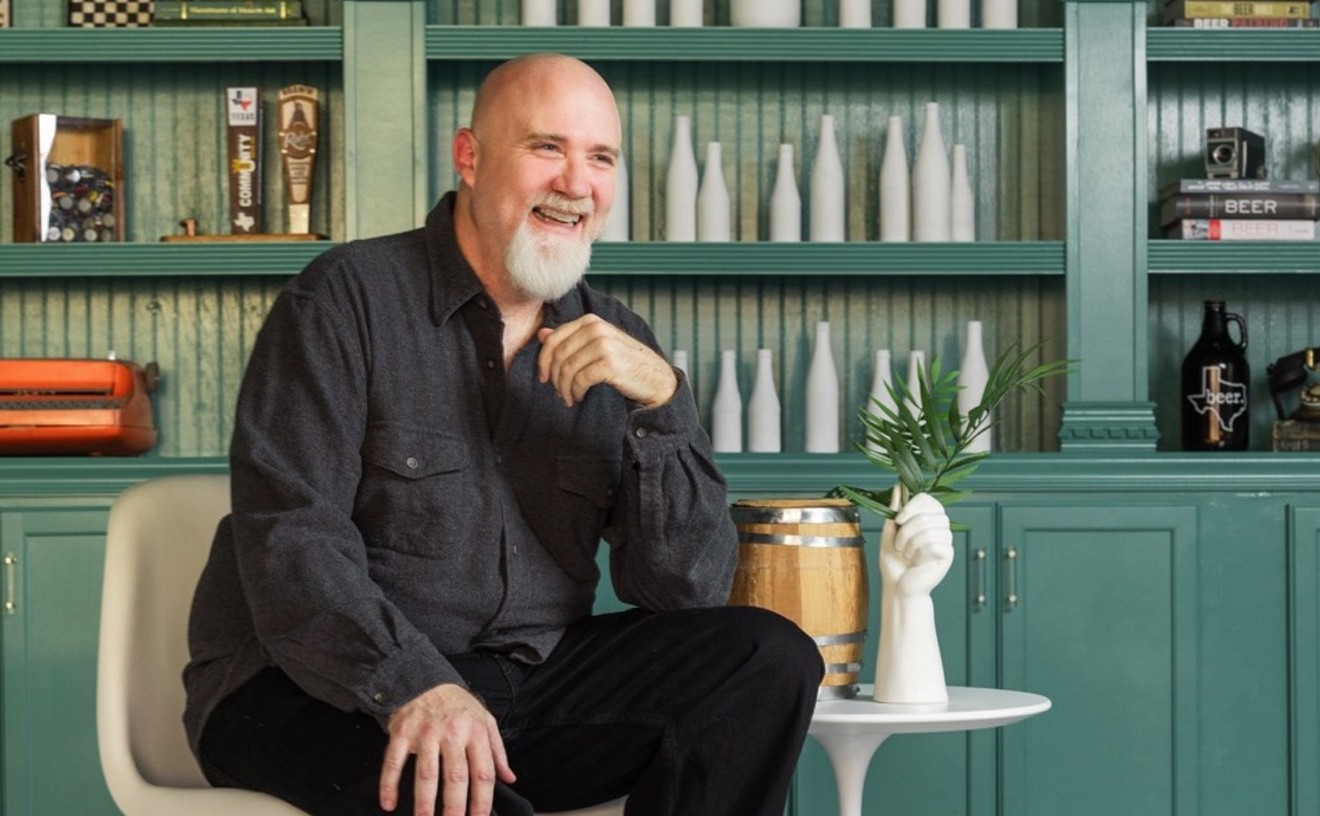
The history of small brewers and their long, bitter fight against politically entrenched alcohol distributors and corporate giants has been detailed elsewhere — for instance, in Brown and coauthor Paul Hightower’s book North Texas Beer: A Full-Bodied History of Brewing in Dallas, Fort Worth and Beyond. Since the Legislature allowed small breweries to both open taprooms and sell their beer outside of their own premises in 2013, and permitted them to sell beer to go in 2019, the taps have been opened wide for craft beer at last.
Brown, a certified beer judge who started his Beer in Big D blog in 2013, is happy about that, naturally. Well, mostly happy, it seems.
Talking with Brown, one gets the sense that he’s a little wistful for Texas craft brewing’s salad days, when a small group of beer lovers decided they wanted to try their hands at craft brewing and had to fight like the devil to win that right from lawmakers in Austin.
“I’d kind of gotten interested in the community of it,” Brown says of his start in writing about craft beer. “It kind of brought back the whole pub culture.”
In the 19th century, brewing beer locally in small batches was a side hustle for immigrant German farmers and shopkeepers. Biergartens flourished and virtually every small town in Texas had its local brews. Dallas had Mayer’s Garden, a massive entertainment complex built in 1881 offering live music nightly, a restaurant, vaudeville acts, a zoo, a shooting gallery and beer, beer, beer in a family-friendly garden where all classes mingled.
Prohibition and the arrival of giant corporate breweries in the mid-20th century eventually wiped out the small brewers and biergartens, but growing interest in home-brewing in ’90s sparked a revival of small-batch brewing.
Early on in the craft beer revival, the brewers all knew and supported one another, banding together in Austin to gain a seat at the bar. When a brewer held an event to celebrate the release of a new beer, other brewers would come to show support. Today, Brown says, he’ll visit taprooms to try a release and never meet the person who brewed it. He seldom sees brewers mingling at one another’s events these days. It’s the price of success, one supposes.
Tastes have changed, too. Younger drinkers want a variety drinks — wine, cider, cocktails — along with food and entertainment. To compete, brewers need their customers to linger and spend.
“You want to be a one-stop-shop today,” Brown says. “You want to have beer, beer to go. You want to have a food option. … The younger kids are into canned cocktails and stuff. So, taprooms are introducing their owned labeled whiskey. … These days are about diversifying.”
In that way, he says, things have come full circle. So, who knows? Maybe someday we’ll all mingle again to sip suds, check out the lions and catch a vaudeville act. There are certainly worse futures to look forward to. (But a beer garden/shooting range? Let’s give that one a little more thought.)
Best Art Gallery
Dallas Contemporary
Best Café
Arwa Yemeni Coffee
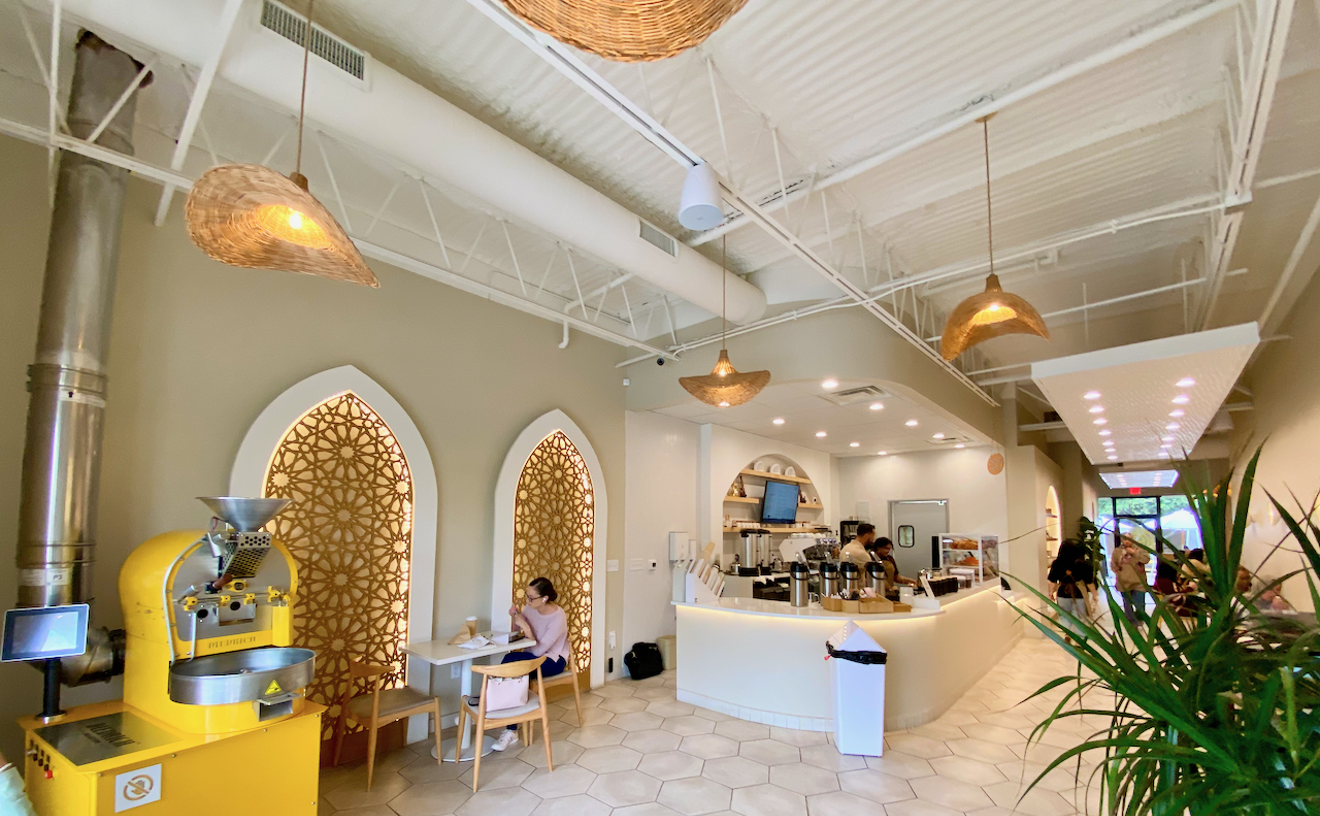
Susan Shihab and Nora Soofi bring the flavors of their Yemeni hometown to Richardson at Arwa Yemeni Coffee. Honeycomb bread, nut-stuffed dates and pound cake drenched with rose syrup are just some of the Yemen-inspired treats that draw visitors to line up out the door during peak hours. Linger over a cardamom-scented coffee, black Adeni tea or a dirty chai while you soak up the decor. Light-washed wooden tones, lush plants and a beautifully lit patio all pay homage to Arwa, an Arabic name that means "beauty and grace."
- 888 S. Greenville Ave., Richardson, 75081 Map
- 214-782-9749
- arwayemenicoffee.com/
Best Coffee Shop
LDU Coffee
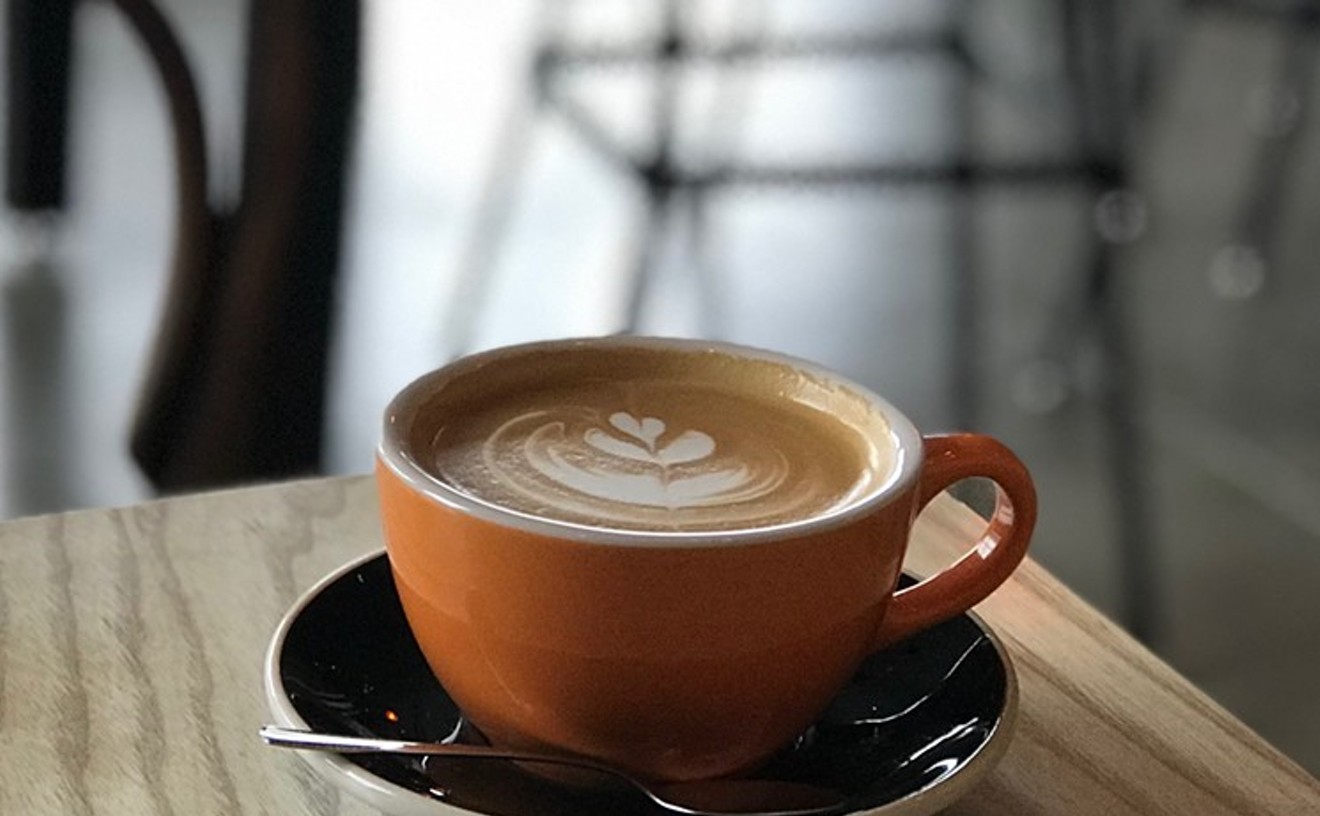
A "cheeky Australian take" on the classic Italian coffee shop, LDU Coffee opened its doors to the Dallas public in 2017. Two Australian brothers with a passion for coffee was all it took for the concept to skyrocket in popularity. Blending the Australian coffee-drinking culture into the Texas food scene, the brothers roast all of their coffee in-house with a proprietary Australian recipe that the two came up with together. The difference is obvious, and the coffee is stronger than most. The popular flat white coffee comes with a fluffy milk foam floating atop a rich coffee base. LDU's Cowboy Juice and a Captain America coffee are even stronger, both claiming to "fly you straight into tomorrow." Add-ons like honey, cinnamon and extra shots of espresso treat you to the real Australian coffee-drinking experience.
- 2650 N. Fitzhugh Ave., Dallas, 75204 Map


